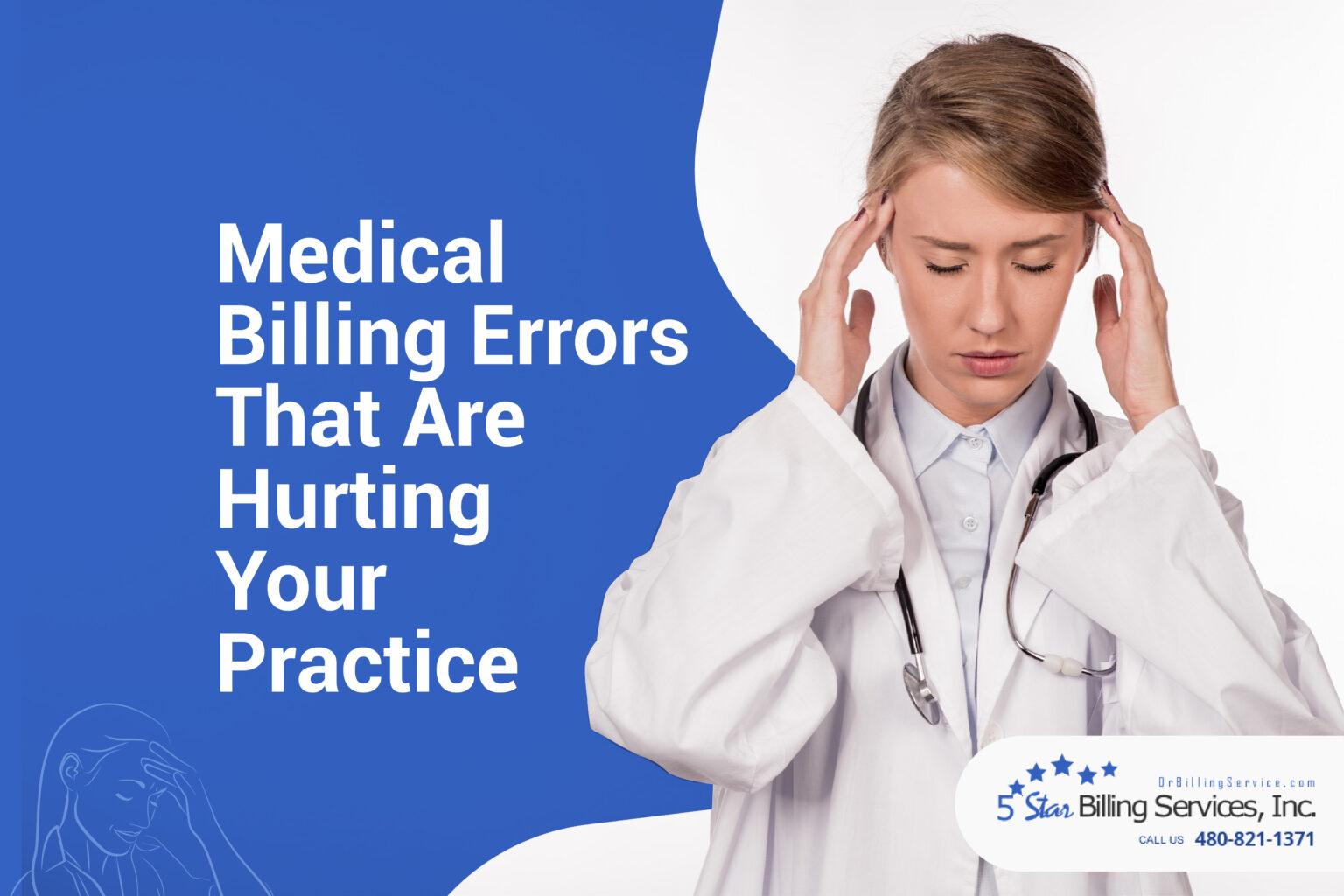Medical Billing Errors That Are Hurting Your Practice January 26, 2021

Effective medical billing is the backbone of a successful practice. Thus, maintaining a healthy cash flow is every provider’s daily challenge. Any mistake, error, or delay will not only disrupt your flow but will also negatively affect your patient experience and patient retention. Therefore, it is essential to determine blockages that are hurting your finances. It will make it easier for you to streamline your processes, minimize errors, and improve the overall patient experience. We’ve gathered the top five medical billing errors and how to solve them:
1. Limited Payment Options
Delay in your payment collection clogs up your cashflow. Consumers, including patients, prefer to settle their bills online through bank transfers, Amazon pay, PayPal, or credit cards. If you don’t offer at least some of these, that’s a problem. Patients will pay more promptly if you give them a variety of payment options.
Equip your patient portal with online payment options that comply with HIPAA and HITRUST standards. It will make it easier for your patients to pay you, increasing your patient collection in the process.
2. Incorrect Patient Data
Patient details are the foundation of your medical billing process. One typo on a patient ID number or name can get your claims rejected immediately. Always remind your staff to not just double-check, but to triple the effort using claim scrubbing software that can automatically detect typos, errors, or missing information.
3. Inaccurate Coding
Always get the updated version of your coding books. Coding guidelines, procedural, and diagnosis codes are updated annually. Coding errors are inevitable no matter how seasoned or experienced your staff may be. Make it a habit to conduct training or refresher courses for your staff for ICD-10 coding updates.
4. Manually Managing Your Claims
There are still providers who are using a manual process for their denials management. If you are one of them, then it’s time for you to embrace medical billing innovations. You can get more
insights through better analytics and improve your medical practice using automated EHR/EMR solutions integrated into your medical billing software. Some software has a checklist and alerts to ensure proper coding and billing practices.
5. Sending Claims to the Wrong Insurer
Sending the claim to the incorrect insurance provider is one of the simplest medical billing errors you can avoid. Usually, it happens because you do not have a copy of the patient’s insurance card. In order for you to send it to the right insurance company, always secure a copy of the front and back of the insurance card. Always ask the patients if there are any changes to their insurance, too.
By eliminating the top billing mistakes in your medical practice, you can shorten billing cycles, maintain healthy cash flow, prevent regulatory violations, and deliver a better patient experience that will help you retain more patients and become more profitable.
Tap Into Our Expertise
By being aware of your medical billing errors, you can easily remove your blockages and improve your cashflow. At 5 Star Medical Billing, we offer the highest level of performance for high-quality medical billing. Let us help you during these dire times.

